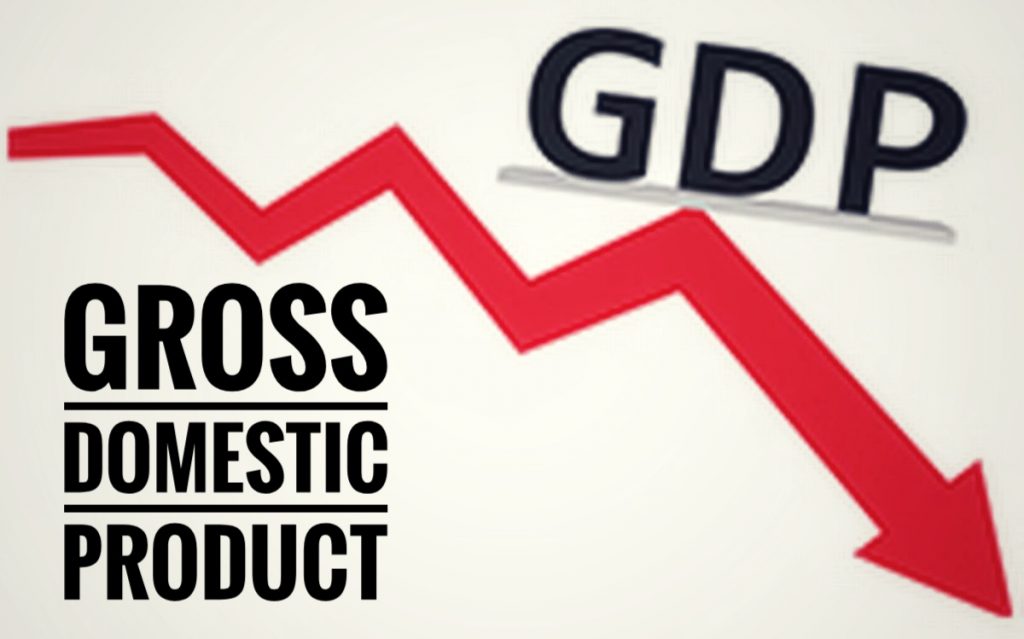With a countrywide lockdown, economic fallout is expected along with a global recession. In light of the recent statements by the IMF Chief who foresees a recession worse than 2009, NITI Ayog Vice Chairman Rajiv Kumar announced that the lockdown may have a devastating effect on the Indian economy.
Expect a Negative or Zero GDP in First Quarter
Rajiv Kumar stated that there was a high possibility of the country’s GDP to drop to zero or even negative in the first quarter. While there is a chance that this may not happen since essential services are functioning, the virtual shutdown of all other sectors of the economy could result in a zero or negative GDP
growth, Kumar said in an interview.
“See all the essential services are still working, so a small part of the economy is moving, that
means it should not slip to zero,” Kumar said. “But it could slip to zero or even negative, who knows? It depends on how long the economic curfew lasts… What is clear is that the economy would be hit very hard during this quarter.”
However, he did state that beyond June it would not be possible to provide any insight into the situation due to too much uncertainty concerning the extent and duration of the pandemic. He further went on to rule out the occurrence of a recession after June as some sectors may start functioning such as transport, entertainment, and FMCG.“We expect the service sectors, which
constitute 55 percent of the economy, to pick up immediately after; so there could be a revival of
sorts,” he added.
Upon questions regarding government consensus on the priority status given to the pandemic over the economic situation, he said that saving lives has to be the first priority.
He further clarified the rationale behind not formulating an economic stimulus to sustain during the lockdown, re responded that India does not have the same capabilities as the western nations.“We will have to calibrate our fiscal response so that we do not go overboard,” he added. “But this is not to say that more steps are not in the pipeline.

Shedding light in relation to the relief packages announced by the Finance Minister Nirmala Sitharaman and the measures undertaken by the Reserve Bank of India in response to the countrywide lockdown, Kumar said that we should look at the government response both as a fiscal and monetary package. “Together, it is a significant package.”
“It has not been quantified but the debt moratorium for three months announced by the RBI would cost the banks some amount of money,” Kumar said. “The fact that the governor said that it would lead to Rs 3.75 lakh crore extra liquidity into the system – that has its own financial implications and cost that the government will have to bear.”
“The government will have to sell its bonds, and the government debt will go up in that sense,” he added.
Funding
Kumar said that it would not be “correct” to question the funding of the schemes under the relief packages undertaken by the government.
“One cannot compare the government to the household… Theoretically speaking, the
government has the recourse to unlimited money since it can print it,” he said. “For example, Trump has announced a $2 trillion package, now where is that money going to come from?”
However, he also mentioned that the citizens must also donate to this cause in order to accumulate the adequate funds and resources required.
“In India, the private economy is always a surplus economy, so if the government feels the need, it could ask individuals to come forward and donate,” Kumar said in a personal capacity, and not as an official. “There is 25,000 tonnes of gold with people, trusts, temples in India… In the 60s, I remember our mothers and grandmothers coming forward to give it to the government,” he said. “I believe we are in a similar situation today, and that is the kind of response we need from people.”
Conclusion
Constant declarations by global organizations indicating a worldwide recession are further solidified by domestic organization heads. It is certain that the economic consequences will be far too great to underestimate and turn a blind eye towards. Whether India should develop a comprehensive economic plan to deal with these adverse economic effects seems to be a far too obvious a choice, however, it depends greatly on the capacities of government agencies to assess and allocate resources according to priority status.

